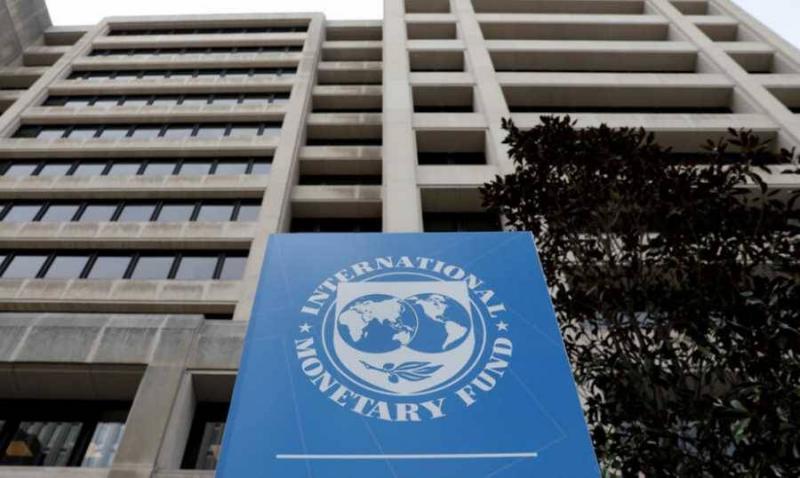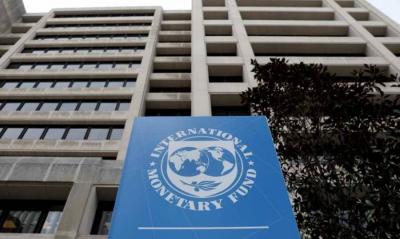The International Monetary Fund's (IMF) momentum towards Lebanon has intensified after a period of stagnation following the staff-level agreement phase, which required the Lebanese government to implement the necessary measures to move towards a final agreement. The situation was further cooled by the Gaza war, which necessitated the evacuation of the IMF office in Beirut, according to *Al-Jumhuriya*.
Although the IMF's regional office team in Beirut has not returned since the forced evacuation that occurred after the October 7 war began, communication activity has increased, and efforts have intensified recently, perhaps more than before. In the past few weeks, there has been an extraordinary surge in communications with Lebanese parties, aimed at seeking solutions to overcome the obstacles that have thus far prevented the approval of a recovery plan, which would allow Lebanon to secure funding lines from the IMF in addition to financial packages from countries around the world, waiting for fiscal stabilization to provide support.
The background of this extraordinary activity from the IMF team concerned with the Lebanese file includes several reasons, the most prominent being:
First, renewed American encouragement for the Fund's management to make further efforts to resolve the issues ahead of finalizing the agreement with Lebanon.
Second, the realization that waiting for the Lebanese authorities to execute the required reforms to establish a financing agreement with the IMF would be futile. Therefore, assistance must be provided in this area as well to facilitate an agreement among Lebanese factions on the necessary implementations.
Third, the Gaza war and its aftermath appear prolonged, thus necessitating work apart from the developments of this war, abandoning the notion of waiting for its conclusion to resume normal activity.
Based on these backgrounds, activity and momentum have returned to the IMF's operations in Lebanon, whether through the small team still present or via intensified remote communications in recent times.
The IMF has also been keen to accompany the budget project and the decision to increase public sector employees' salaries, providing advice in this regard. This explains the government's insistence on offering incentives and financial allowances to employees outside the salary context to alleviate the burdens imposed by salary increases and to pave the way for reforms, including the restructuring of the public sector in the upcoming phase.
Additionally, the IMF has been involved in the creation of a plan to restore order to the banking sector and has observed the backlash against it. After sensing that this plan had failed, the IMF held intensive meetings with all concerned parties to understand their positions and visions for addressing the issue and to propose an alternative to the plan that has effectively collapsed.
In terms of the details, the IMF's drive aligns with the American insistence on speeding up solutions to exit the current situation, particularly the cash economy. Washington understands that restoring the country to legitimate financial oversight cannot take place before banks resume their normal roles. All attempts made by the United States to mitigate the risks of the cash economy do not seem effective; in fact, the American delegation that visited Beirut heard clear warnings that increasing pressure on the legitimate economy and hinting at stopping correspondent banks' cooperation with the Lebanese financial sector will lead to additional growth in the illegal parallel market, ultimately harming the Lebanese economy even more, without alleviating the risks of money laundering for terrorist financing, which remains the primary goal for the Americans, according to *Al-Jumhuriya*.
Thus, we are likely to see more activity from the IMF in the upcoming period, with invitations extended to influential Lebanese figures in financial and economic decision-making to visit the IMF headquarters in Washington and engage in discussions with those responsible for the Lebanese file. The IMF will carefully select the invited figures, acknowledging that any solution must consider the depositors' file, as it is challenging to approve any ambiguous plan regarding deposits. Priority will also be given to restoring banks to their normal operations, which means that any long-term solution for deposit payments will be referred to a private institution to expedite the banks' balance sheet releases from commitments, paving the way for the normalization of the financial market.
Meanwhile, Washington will be monitoring developments in this regard, particularly since increasing pressure on Lebanon and hints of placing it on the gray list in the upcoming FATF meeting will complicate the market further and allow for additional expansion in the cash economy rather than the opposite.




